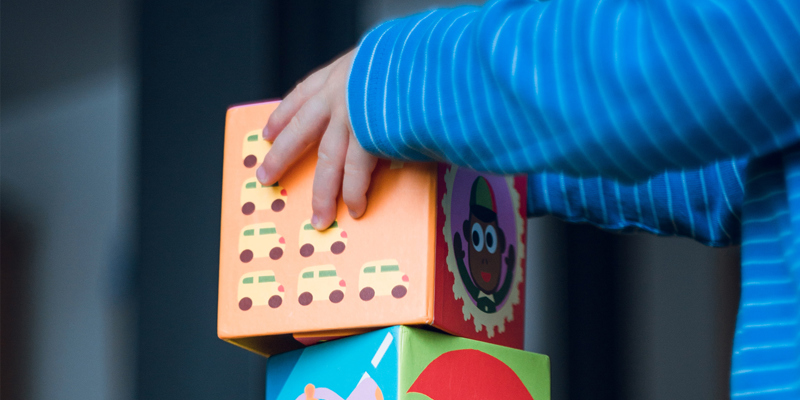
National Adoption Week: understanding legal adoption for all kinds of families
To mark National Adoption Week (21–27 October 2024), senior associate Jade Quirke shares her specialist experience of helping families secure adoption orders in a variety of circumstances.
Generally speaking, adoption is understood to be a process where a person or couple assume care of an unknown child following a detailed local authority or adoption agency assessment. It is the legal mechanism that transfers parenthood from birth parents to adopters and intended to be a permanent solution in the best interest of the child.
While the above is true, adoption orders are appropriate in many other family scenarios, some examples of which are outlined below. While these are fictitious case studies, they are based on real, recent cases the Russell-Cooke children law team has been involved in.
Blended families
Sejal has one son, Aaron, who is aged nine. She separated from Aaron's biological father when he was 12 months old and has been married to her husband, Darshan, for four years. Aaron’s biological father recently passed away and Sejal is expecting her second child with Darshan in a few months. In advance of the birth, Sejal and Darshan would like Darshan to adopt Aaron so that their legal relationship is secure.
In this scenario, Darshan could apply for a step-parent adoption order to secure legal parentage and parental responsibility (shared with Sejal) for Aaron. To trigger the process, Darshan would need to give notice of his intentions to adopt to his local authority and wait for a period of time before making his court application. The process would involve Darshan being assessed as suitable to adopt Aaron and Sejal would need to formally consent to the making of the order. Pending an adoption order, Darshan and Sejal could sign a step-parent parental responsibility agreement and it would be advisable that they update their wills to cover the limbo period before adoption order is made.
Adoption following fertility treatment
Florence and Peter are an opposite sex couple who are British and live in Oxford. They are not married or in a civil partnership but live together as partners in an enduring relationship. Their daughter, Holly, was conceived via IVF treatment in Spain using an embryo created with donor eggs and donor sperm. Florence carried and gave birth to Holly in the UK and is named on her birth certificate as her sole legal parent. Peter has been involved in Holly’s life since her birth but has no legal status. He wants to secure a birth certificate showing his name as her legal father.
Florence is Holly's legal mother and the only person with parental responsibility. Due to a combination of the fact that Florence and Peter were not married or in a civil partnership at the time of their treatment, and treatment took place outside of the UK, Peter is not treated as Holly’s legal father and is not able to be registered on her birth certificate. To resolve this, he could apply for a step-parent adoption order (note, he does not need to be married to Florence to be eligible) and as above, he would first need to notify his local authority of his intentions to adopt and be assessed as suitable. Florence would also need to consent.
Unlike Darshan and Sejal, Peter and Florence would be unable to sign a step-parent parental responsibility agreement as an interim measure pending the adoption order as this is only an option for couples who are married or in a civil partnership. Peter could alternatively apply for a parental responsibility order and both he and Florence should make sure that their wills are updated.
Same-sex parents
Jo and Nicola are a same-sex couple. They have a son, Max, who is one month old. He was conceived via artificial home insemination with Jo’s egg and donor sperm. Upon registering the birth, the couple were told by the Registrar that Nicola could not be listed as Max’s second legal parent as they were not married or in a civil partnership at the time of his conception. The couple have been told that Nicola could apply to adopt Max to secure parenthood. They have contacted the sperm donor about this and he is in full support; he never intended to be a legal parent and does not wish to have a relationship with the child.
As Max was conceived at home and Jo and Nicola were not married or in a civil partnership at the time, Nicola has no legal status for Max. To remedy this, she could apply to the court for a step-parent adoption order and as above, she must first give notice to her local authority before making her court application. In this scenario, the sperm donor would need to be notified of the application but he would not need to consent to the order being made. Once the adoption order was made, an adoption certificate (very similar to a birth certificate) would be issued to Nicola and Jo naming them both as Max’s legal parents.
As with all of the above, Nicola and Jo should make sure that that they have wills in place and if they decided to marry or enter into a civil partnership, they could sign a step-parent parental responsibility agreement.
These are just a few examples and other adoption scenarios include family members who wish to care permanently for a relative in their care and those who wish to care for a child overseas whether a relative or, unknown child.
Creating and blending families is a beautiful thing and our specialist children law team is happy to answer any questions you may have about legal status for a child you may have in your care, or plan to have in your care in the future. No question is too small and, where necessary, we are happy to pass on the details of other adoption organisations and professionals who may be able to assist.
Get in touch
If you would like to speak with a member of the team you can contact our family and children solicitors by email, by telephone on +44 (0)20 3826 7520 or complete our enquiry form.



